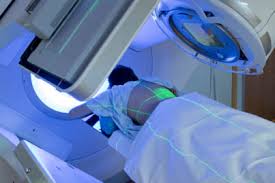ASTRO Updates Rectal Cancer Radiation Therapy Clinical Guideline
 The American Society for Radiation Oncology (ASTRO) issued an updated clinical guideline for physicians who use radiation therapy to treat patients with locally advanced rectal cancer. This update incorporates new data on patient selection and best practices from several practice-changing clinical trials published since the prior guideline was issued in 2020. The updated ASTRO guideline is published in Practical Radiation Oncology.
The American Society for Radiation Oncology (ASTRO) issued an updated clinical guideline for physicians who use radiation therapy to treat patients with locally advanced rectal cancer. This update incorporates new data on patient selection and best practices from several practice-changing clinical trials published since the prior guideline was issued in 2020. The updated ASTRO guideline is published in Practical Radiation Oncology.
Colorectal cancer is the leading cause of cancer deaths for Americans aged 20 to 49 and the second most common cause of cancer-related death overall. In the U.S., the incidence of early onset colorectal cancer is rising, with particularly sharp increases among younger adults. Rectal cancer diagnoses account for nearly one-third of colorectal cancers, and more than 46,000 adults in the U.S. are estimated to be diagnosed with this disease in 2024.
When ASTRO published its 2020 guideline for locally advanced rectal cancer, the standard of care included pre-operative chemoradiation therapy followed by surgery to remove the tumor and then post-operative chemotherapy. In the interim, several randomized trials explored intensifying treatment to potentially improve outcomes for patients at higher risk of cancer recurrence, and de-intensifying treatment to reduce side effects and potentially improve quality of life for patients with lower recurrence risk.
“This updated guideline incorporates new, practice-changing data that expand treatment options for people with rectal cancer. These include approaches such as non-surgical alternatives that enable organ preservation or the selective omission of radiation for patients with lower risk disease, total neoadjuvant therapy (TNT) courses for those with a higher likelihood of recurrence and newer biomarker-driven treatments such as immunotherapy,” said Prajnan Das, MD, MPH, FASTRO, chair of the guideline task force and a professor of gastrointestinal radiation oncology at The University of Texas MD Anderson Cancer Center.
“It is now clear that people diagnosed with locally advanced rectal cancer should be stratified into higher-risk and lower-risk groups. These emerging treatment paradigms allow for more personalized and nuanced recommendations that are tailored to each individual patient’s level of risk as well as their priorities, providing the right balance between effective cancer control and preserving quality of life,” said Jennifer Y. Wo, MD, vice chair of the guideline task force and an associate professor of radiation oncology at Harvard Medical School and Mass General Cancer Center.
The guideline outlines evidence-based approaches to personalize treatment for patients with locally advanced rectal cancer, with best practices for delivering pelvic radiation treatments, options for organ preservation and guidance for follow-up care. Key recommendations include the following:
- Neoadjuvant radiation therapy is recommended for patients with stage II or III rectal cancer to reduce their risk of locoregional recurrence. A thorough clinical staging process — including a physical exam, pelvic MRI and evaluation by a multidisciplinary team — is essential to determine whether patients can be considered instead for upfront surgical resection or theselective omission of neoadjuvant radiation therapy. For patients at lower risk of locoregional recurrence, the guideline now conditionally recommends the selective omission of neoadjuvant radiation therapy; it also provides expanded criteria for defining lower risk disease. When radiation therapy is indicated, it should be given before, rather than after surgery.
- Organ preservation through total neoadjuvant therapy (TNT) followed by non-operative management (NOM), or neoadjuvant chemoradiation followed by local excision, may present alternatives to radical surgery for select patients, with recent data supporting the safety and feasibility of NOM for patients who respond favorably to neoadjuvant therapy. The guideline outlines criteria for situations where surgery can be avoided, as well as best practices for long-term surveillance and care to support these patients.
- Updated recommendations also describe regimens to treat patients at higher risk of recurrence who would likely benefit from an intensified treatment approach using TNT to improve outcomes.
The update included a systematic literature review of articles published from April 2019 through October 2023. The multidisciplinary guideline task force included radiation, medical and surgical oncologists, a radiation oncology resident and a patient representative. The guideline was developed in collaboration with the American Society of Clinical Oncology and the Society of Surgical Oncology, and it is endorsed by the European Society for Radiotherapy and Oncology and the Royal Australian and New Zealand College of Radiologists.